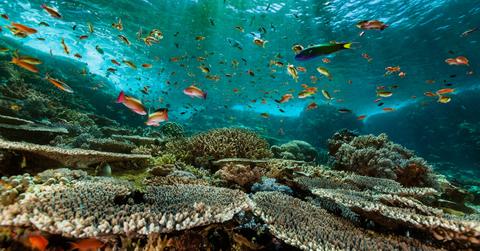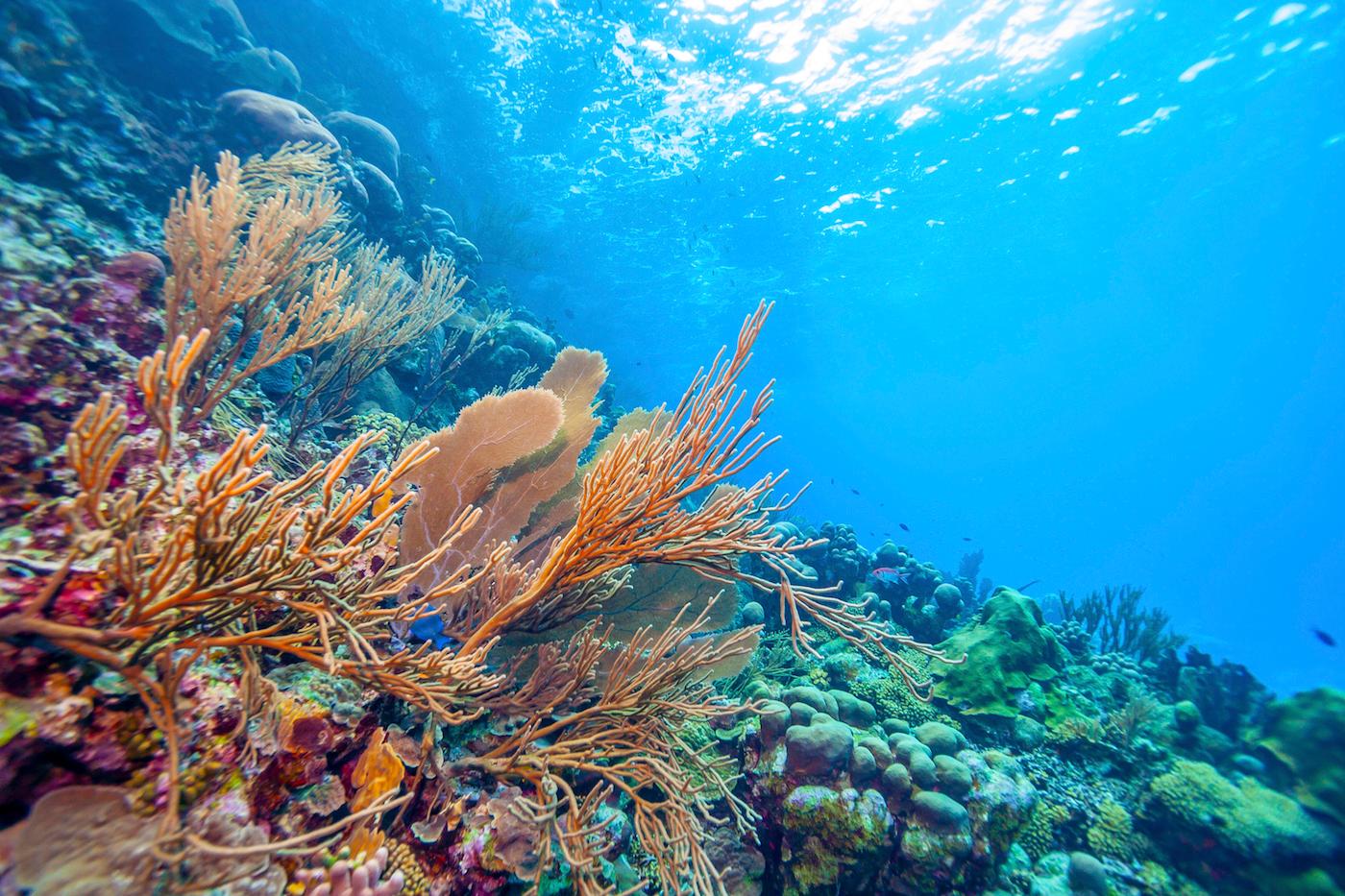We Can Completely Revitalize the World’s Oceans by 2050, New Study Finds
Oceans could once again flourish in 2050 — if we make the effort.
Updated April 1 2021, 9:02 a.m. ET

For the past 14 years, environmentalists have been dolefully citing a 2006 study that predicted that overfishing at the current rate (among other factors) could cause fishless oceans by 2048. And even though human exploitation of the ocean doesn’t seem like it’s gotten much better over the past decade, a new study has a far more optimistic view on the situation. The scientists behind the new research believe that by 2050, we could see the world's oceans flourishing once again.
The study, published in the journal Nature on April 1, 2020, documents the ways marine populations, underwater habitats, and ecosystems have recovered thanks to conservation interventions.
“Recovery rates across studies suggest that substantial recovery of the abundance, structure and function of marine life could be achieved by 2050, if major pressures — including climate change — are mitigated,” reads the introduction to the study. “Rebuilding marine life represents a doable Grand Challenge for humanity, an ethical obligation and a smart economic objective to achieve a sustainable future.”
The study’s authors say we shouldn’t aim to restore the ocean to what it used to be, since there aren’t detailed enough records from the past. Instead, we need to focus on growing key habitats and species, and restoring the ecosystems on the ocean floor.

Achieving this will require two things that are theoretically doable, but unfortunately, many humans seem to be unwilling to give: sustained perseverance (from individuals, but more importantly, from governments) and a lot of money (billions of dollars).
While many may feel it’s not worth the effort or the capital, the benefits of a healthy ocean provide humans with far beyond having sea animals to eat. As explained by the Food and Agriculture Organization of the United Nations (FAO), oceans absorb carbon dioxide from the atmosphere; they absorb about 90 percent of the additional heat caused by global warming; they are a key renewable energy resource; they are a vital part of the water cycle, responsible for producing rain, which is used for drinking water and in the agricultural industry to grow crops; and more.
So why are the scientists behind this study so optimistic that oceans will prosper 30 years from now? If you check out the full study, you will see all the data the researchers compiled. The data shows how over the past few decades, certain parts of the world’s oceans and certain marine species have actually experienced: a recovery of fish stocks and better management of fisheries, improvement in water quality, a reduction in pollution, habitat restoration and protection, and extinction risk reductions.
If we take the measures that were used to improve those factors in certain areas and apply them to the ocean at large, we could achieve thriving oceans by 2050. Yes, this would take billions of dollars — but the impacts it would have on the planet and humanity would be worth it.
Callum Roberts, a professor at the University of York who worked on the study, spoke with The Guardian about why the research team behind the study believes we can revive the oceans, even though overfishing and the climate crisis seem to keep getting worse.
“Overfishing and climate change are tightening their grip, but there is hope in the science of restoration,” Roberts told The Guardian. “One of the overarching messages of the review is, if you stop killing sea life and protect it, then it does come back. We can turn the oceans around and we know it makes sense economically, for human wellbeing and, of course, for the environment.”